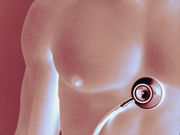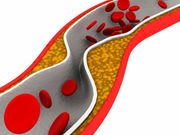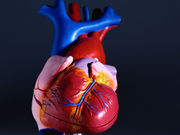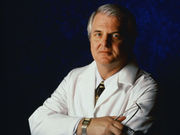Cardiology
Home Cardiology
Guidelines for Appropriate Use of Cardiac Imaging in the ER
Appropriateness of imaging evaluated in 20 clinical scenarios for ER patients presenting with chest pain
Focused Cardiac Ultrasonography Can Discriminate LVSF
Trained internal medicine physicians can differentiate normal from reduced left ventricular systolic function
Glucose Levels Linked to Cardiac Surgery Outcomes
Levels ≥180 mg/dL tied to worse outcomes for most patients; not for those with insulin-treated diabetes
Patient Satisfaction With Doctors May Be on the Rise
Physician's expertise, time spent in exam room, and online access to info were key factors in trend
IV Thrombolysis Aids Patients Dependent Before Their Stroke
Study finds favorable results among older adults who already had health problems
Depressive Symptoms Linked to Coronary Artery Calcium
Negative association with CAC severity in women; nonlinear U-shaped association for men
Profound Hypothermia Best Avoided in Initial Reperfusion
Minimizes injury and improves functional recovery of hearts donated after circulatory death
Review Shows Lasting Weight Loss for Very-Low-Energy Diets
VLEDs plus behavioral program achieves greater long-term weight loss than behavioral program alone
A-Fib May Pose Bigger Threat to Women
Review found atrial fibrillation linked to higher risk of stroke, cardiac events, death in women
Physicians Choose Less Aggressive Care at End of Life
Doctors less likely to die in a hospital, have surgery, and to be admitted to the ICU



















